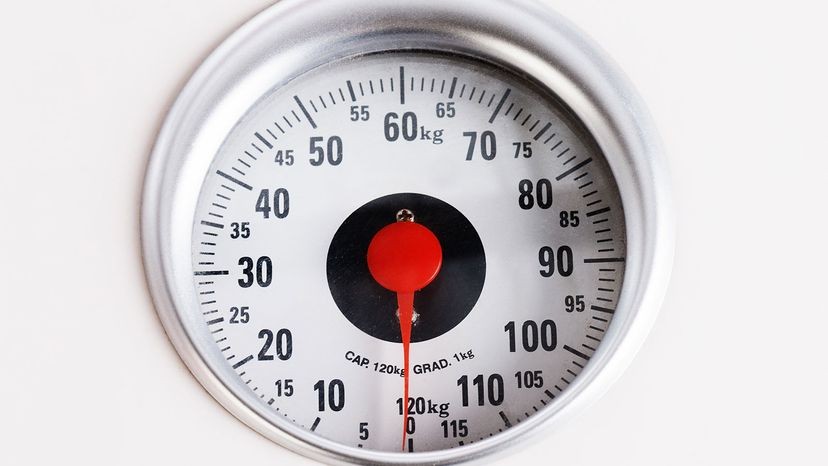Understanding weight and mass can sometimes be tricky, especially when converting between different units of measurement. While much of the world uses the metric system, it’s common to encounter pounds (lbs) as a unit of weight, particularly in the United States. This article will provide a comprehensive guide to converting kilograms (kg) to pounds, explaining the process and providing helpful tips for quick conversions.
 Scales showing kilograms and pounds
Scales showing kilograms and pounds
The Textbook Method: Converting Kilograms to Pounds
The key to converting kilograms to pounds is remembering this important conversion factor:
1 kilogram (kg) = 2.2046 pounds (lbs)
This means that one kilogram is equal to approximately 2.2046 pounds. To convert any weight in kilograms to pounds, you simply multiply the number of kilograms by this conversion factor.
Formula: Pounds (lbs) = Kilograms (kg) x 2.2046
Let’s consider an example. Suppose you have an object that weighs 15 kilograms. To find its weight in pounds, you would perform the following calculation:
Pounds = 15 kg x 2.2046 lbs/kg = 33.069 lbs
Therefore, 15 kilograms is equal to approximately 33.069 pounds.
Understanding the Conversion Process
For those who prefer a more detailed approach, the conversion can be broken down into fractions. Let’s say you want to convert 50 kilograms to pounds. You can set up the equation as follows:
(50 kilograms / 1) x (2.2046 pounds / 1 kilogram)
Notice that the “kilograms” units cancel each other out, leaving you with:
(50 / 1) x (2.2046 pounds / 1) = 50 x 2.2046 pounds = 110.23 pounds
This method reinforces the understanding of how the units are converted and canceled out, providing a clearer picture of the process.
The Quick Conversion Method: Estimating Kilograms to Pounds
If you need a quick estimate and don’t require precise accuracy, you can use a simplified conversion factor:
1 kilogram (kg) ≈ 2.2 pounds (lbs)
Using this approximation, you can simply multiply the number of kilograms by 2.2 to get an approximate weight in pounds.
For example, if you want to quickly estimate the weight of 20 kilograms in pounds:
Pounds ≈ 20 kg x 2.2 lbs/kg = 44 pounds
This method provides a reasonably accurate estimate for everyday situations.
Mental Math Trick: Converting Kilograms to Pounds Without a Calculator
If you don’t have a calculator handy, here’s a mental math trick to convert kilograms to pounds:
- Multiply the kilograms by 2.
- Move the decimal place one position to the left on the original kilogram value.
- Add the two numbers together.
Let’s say you want to convert 45 kilograms to pounds:
- 45 x 2 = 90
- Moving the decimal place one spot to the left on 45 gives you 4.5
- 90 + 4.5 = 94.5
Therefore, 45 kilograms is approximately 94.5 pounds.
Converting Pounds to Kilograms
To convert pounds to kilograms, you need to use the inverse conversion factor:
1 pound (lb) = 0.453592 kilograms (kg)
To convert any weight in pounds to kilograms, you simply multiply the number of pounds by this conversion factor.
Formula: Kilograms (kg) = Pounds (lbs) x 0.453592
For example, if you have an object that weighs 100 pounds, to find its weight in kilograms, you would perform the following calculation:
Kilograms = 100 lbs x 0.453592 kg/lb = 45.3592 kg
Therefore, 100 pounds is equal to approximately 45.3592 kilograms.
Quick Method for Pounds to Kilograms
For a quick estimation, you can divide the weight in pounds by 2.2:
Kilograms (kg) ≈ Pounds (lbs) / 2.2
For example, if you want to quickly estimate the weight of 150 pounds in kilograms:
Kilograms ≈ 150 lbs / 2.2 lbs/kg = 68.18 kg
This provides a reasonable estimate for most everyday purposes.
Why the Conversion Matters
Understanding how to convert between kilograms and pounds is crucial in various situations, including:
- International Travel: When traveling to countries that use the metric system, knowing how to convert weights can help you understand luggage limits, product sizes, and more.
- Science and Engineering: Many scientific and engineering calculations require measurements in kilograms, so converting from pounds may be necessary.
- Cooking and Baking: While some recipes use pounds, many international recipes use grams or kilograms, requiring conversion.
- Health and Fitness: When tracking weight or following fitness programs, understanding the conversion between kilograms and pounds can be essential.
A digital kitchen scale displaying weight in kilograms, a common unit in cooking and baking, emphasizing the importance of understanding the metric system in culinary contexts. Alt: A digital kitchen scale displaying weight in kilograms.
Conclusion
Converting kilograms to pounds and vice versa is a straightforward process once you understand the conversion factors and methods involved. Whether you need a precise conversion or a quick estimate, the information provided in this guide will help you confidently navigate between these two units of measurement. Remember the key conversion factors and practice the methods outlined above to master these conversions.